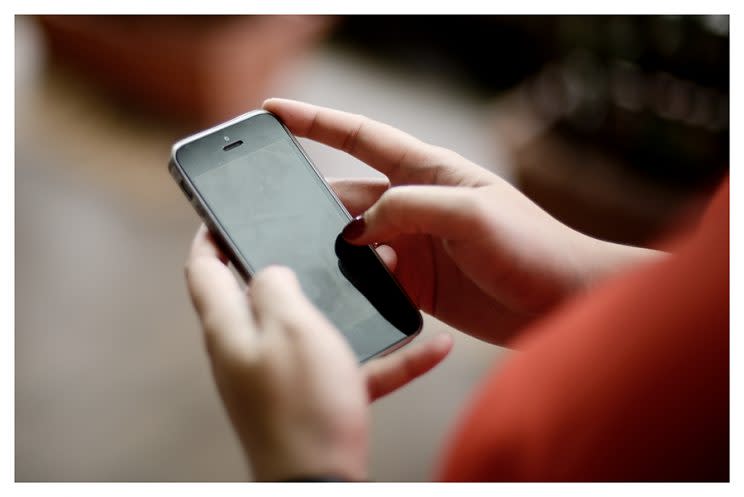Can a New Texting Service Help Prevent Eating Disorders?

Eating disorders are as prevalent and complex as ever, but could prevention and treatment be as easy as sending a text?
One renowned eating disorder expert thinks so. “It’s not how people really look at themselves, it’s how people think they look, and it becomes distorted,” Lori Osachy, owner of the Body Image Counseling Center in Jacksonville, Fla., told Action News Jax. “Most people won’t admit it, but they feel bad about their bodies. Eating disorders and body image problems affect all of us.”
Osachy launched text2bwell, an eight-week positive body image program that uses a series of text messages to help people change the way they feel about their bodies from the privacy of their cell phones.
The program is free during Eating Disorder Awareness Week (until March 4), and afterward will cost users $25. Enrollment is easy: Just text “BeHealthy” to 44-222 to start receiving guidance on shifting your body image.
Users will receive three different text messages each week, such as “only allow yourself positive comments when you look in the mirror” and “notice what you tell yourself in the mirror and click the following link to learn what to do next,” as well as a link to a password-protected members’ forum where users can talk about how the actions steps went and have the opportunity for one-on-one dialogue with a specialist.
“Services like this could be helpful for prevention of disordered eating, and appear to be based on prevention efforts that have seen some effectiveness in the field,” Erin Hillard, program manager of the University of Notre Dame’s Body Image and Eating Disorder Lab, tells Yahoo Beauty. “The use of technology for prevention is an arena that’s been relatively untapped, but I think there’s a lot there to explore in terms of developing programs that are helpful for those most at risk.”
Hillard continues, “With any app like this there will be drawbacks that hold some people back — the cost here could be a deterrent, especially for adolescents who rely on their parents for phone service.” Being that people with disordered eating habits are notoriously secretive, some may be hesitant to share their struggles. “Parents typically want what is best for their children, but children don’t always know how to broach sensitive topics with their parents,” she says.
But while some may be deterred, others are likely to find refuge in the anonymity of the program. “One positive that I see from this app is that many young people who may want to seek help fail to do so because they’re embarrassed to talk about their bodies,” Hillard says. “This would allow them to do that in a way that may feel more private or anonymous.”
Any effort to combat eating disorders is significant, though. Osachy said that body positivity is more than a personal problem. “We all need to work on this to help change the culture to help little girls and boys feel better about their bodies — the same goes for adults.”
Read More:
How We Can – and Should – Change the Negative Way We Talk About Eating
This Woman Is Bravely Sharing Her Body Transformation in Combating Anorexia
7 Times Oprah Taught Us to Love Our Bodies
Let’s keep in touch! Follow Yahoo Beauty on Facebook, Twitter, Instagram, and Pinterest.

